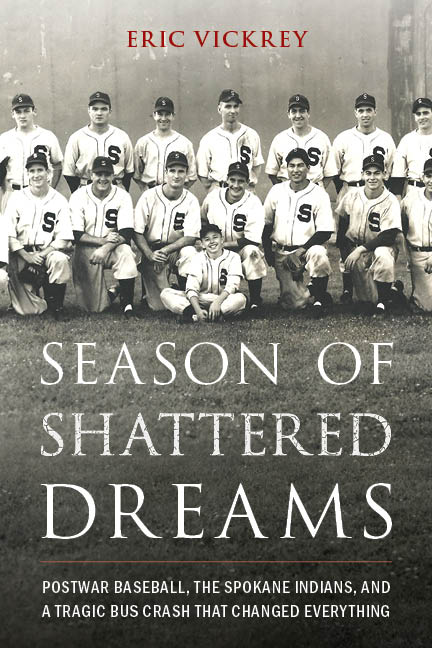
Johnny Bench: Almost a Cub
There are some things that seem to go naturally go hand in hand. Gastronomically speaking, there’s spaghetti and meatballs, chili and cornbread, and my personal favorite—peanut butter and jelly. Baseball-wise, Stan Musial is synonymous with the Cardinals, Roberto Clemente with the Pirates, and Johnny Bench with the Reds. But the latter pairing almost never came to be. If Billy Capps had his way, Johnny Bench would have been a Chicago Cub.
Capps spent 61 years in professional baseball—23 as a minor-league player and manager and 38 as a scout with the Cubs.1 In 1965, he was just a few years into his scouting career. One spring afternoon, he was driving the backroads of Oklahoma when he happened across a high school game in the tiny town of Binger, population 600. Capps was instantly enamored with the home team’s catcher. The solidly built youngster had a cannon for an arm. As a hitter, the ball jumped off his bat. Capps quickly realized he had unearthed a gem. His name was Johnny Lee Bench.

Capps eagerly filed a report to his supervisor, who traveled to Oklahoma to see Bench for himself. When he got there, he watched Bench go 1-for-4. Perhaps Capps had oversold the kid. There was nothing about his play that screamed first-round draft pick. Bench’s performance that particular day was deceiving, however. It just so happened that he had just returned from his senior class trip and hadn’t played in nearly two weeks. He was a bit rusty. Capps suggested that his supervisor stay and watch the next day’s game. “No, I’ve got other players to see,” he said. The Cubs, like other teams, were trying to gather information on as many players as possible for the upcoming inaugural draft that June. The next day, while the supervisor was off scouting another prospect, Bench returned to form. He went 4-for-4 with two home runs and a pair of doubles.

Capps wasn’t the only scout aware of Bench’s talent. The Reds’ scouting director, Jim McLaughlin, had heard about him at a meeting with some other scouting directors. He sent two of his area scouts, Tony Rubello and Bob Thurman, to Binger. The pair saw Bench play two games. He got a couple of hits, but what really wowed the talent hawks was his arm. Bench had developed incredible throwing ability with the help of his father, who’d stand a hundred feet behind second base and challenge Johnny to throw the ball on a line.
Capps implored his bosses in the Cubs front office to take Bench in the first round. But come draft day, they didn’t want to waste a pick on a guy who they figured would be available much later. Instead, they chose prep pitcher Rick James with the sixth overall pick. With the 16th pick, Cincinnati grabbed third baseman Bernie Carbo, who would go on to have a 12-year big-league career. The Cubs had a second shot at Bench in round two but opted for a college catcher, Ken Rudolph, instead. The Reds called Bench’s name with their second-round pick, 36th overall.
Bench didn’t even know he was on the Reds’ radar. “I was totally surprised Cincinnati drafted me because I hadn’t talked to any of their scouts and I hadn’t expected anyone to pick me that hight,” he said years later. He signed for $6,000 plus college tuition, which amounted to $14,000.

The Cubs would quickly come to regret passing on Bench. Three years later, he won the Rookie of the Year Award. Two years after that, he won the first of his two MVP Awards. Over the course of his 17-year Hall-of-Fame career, Bench made 14 All-Star teams and won 10 Gold Glove Awards. He helped the Big Red Machine win two championships and took home World Series MVP honors in 1976. Bench is widely considered the best catcher in baseball history and is on the Mount Rushmore of greatest Cincinnati Reds of all-time.

Ken Rudolph, on the other hand, became a career backup. In his nine big-league seasons, he hit .213 with six home runs. Bench hit more home runs in the postseason (10) than Rudolph did for his entire career. A year later, the Mets made a similarly regrettable decision, selecting prep catcher Steve Chilcott over Arizona State outfielder Reggie Jackson with the first overall pick.

How different would things have been for Bench and the Cubs had the team followed Capps’ advice? Bench answered that question in a 2012 interview: “People say, ‘What would have happened if you would have become a Cub? I said, ‘I know one thing, they would have won a World Series by now.’ I felt so bad for Billy Capps. He had found me, and he loved me, and I didn’t become a Cub.”

- Capps was Midwest scout of the year in 1989 and was inducted into the Texas Scouts Hall of Fame in 1999. Kerry Wood was among the players he signed. ↩︎
